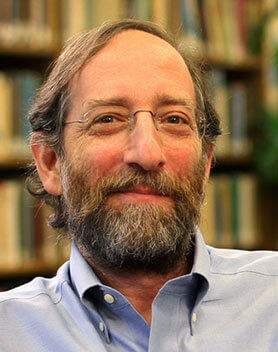
I describe myself as a scholar and interreligious activist. I have been the Director of Interreligious Engagement at ADL since 2014. Prior to that, I served in several synagogues in a rabbinic capacity, was the Judaic Scholar at the Institute for Christian & Jewish Studies in Baltimore and held the Crown Ryan Chair of Jewish Studies at the Catholic Theological Union in Chicago for twelve years. During those years, I also represented the Reform movement in a variety of interfaith settings.
There is a long symbiotic relationship between scholarship and Jewish-Christian relations. Starting in the nineteenth century, as biblical scholars began to challenge traditional narratives about the past, they provided resources that supported those striving to overcome the past hostility between Jews and Christians. Concomitantly, new perspectives on Jewish-Christian relations motivated scholars to reexamine and reinterpret the past and to offer a different view of history in which Jewish-Christian enmity was no longer inevitable. Scholarship, as opposed to theology or traditional hermeneutics, also provides a common language for Jewish and Christian scholars to discuss the past, especially the early centuries of Christianity in which the core of what became the “teaching of contempt for Jews and Judaism” was formed. In a similar manner, I feel that my scholarship informs my work, and my work informs my scholarship.
Additionally, my background in religious studies significantly enhances my work with the broader religious world, both in terms of specific knowledge of other religious traditions and in terms of the religious studies perspective on religion as a human phenomenon.
My rabbinic training, career, and title are also essential. While I would argue that rabbis are not clergy, for many of my interlocutors who represent religious organizations and denominations, rabbinic ordination carries a unique authority that academic degrees do not. Furthermore, the experience of serving a congregation and caring for a community can be a significant points of commonality.
When I was approached by ADL about this position, I did not see it as a “career change,” but rather the next step in a logical progression. I admit that my dream has always been to be a full-time academic; while this position does not afford me much time for research, I still have some opportunities to write, teach and lecture. I am broadly interested in interreligious relations and have been working on an ongoing project on philosemitism in all its expressions.
In contrast to the idea of “objectivity” in scholarship (which I know is problematic and much debated), in interreligious relations the faith commitments of the participants are often paramount, even if informed by scholarship.
I am both religiously and politically liberal; one of the most important skills I have developed is how to listen and speak with others whose perspective is different, especially with those who are more conservative. One of the great rewards is collaborating with others on issues where we agree, while acknowledging that there may be, often fundamental, issues where we will be on the opposite side of the table. One the great frustrations is when organizations refuse to work with us on shared concerns because of objections to other parts of ADL’s agenda, or vice versa.
This is a very fast-paced position, in part because of the pressure to respond to the news cycle, and, frankly, because the seemingly endless torrent of hate in our world. I write this in the midst of the coronavirus and the response to the murder of George Floyd; I have been involved in our efforts to respond to the racism and the antisemitism, and to be allies, in this particular fraught moment. Though it may not be the career I envisioned when I started my doctoral studies, I find it deeply fulfilling to help ADL achieve its mission of “stopping the defamation of the Jewish people and securing justice and fair treatment to all.”